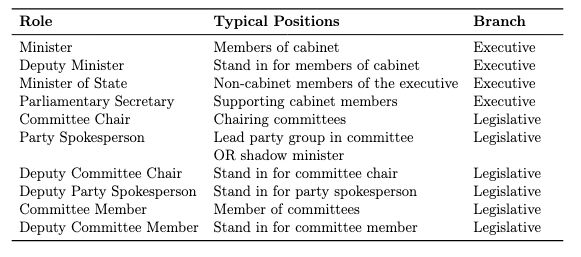
Jens Wäckerle
@jwaeckerle.bsky.social
Post-doctoral researcher at the Cologne Center for Comparative Politics (University of Cologne)
https://www.jenswaeckerle.com/
https://www.jenswaeckerle.com/
Despite low knowledge levels and general opposition towards minority governments, citizens believe them to work better with the opposition and listen to the demands of all voters. Meanwhile, they see min. governments as less stable, less able to solve conflicts, less legitimate and less reliable.

October 17, 2025 at 12:44 PM
Despite low knowledge levels and general opposition towards minority governments, citizens believe them to work better with the opposition and listen to the demands of all voters. Meanwhile, they see min. governments as less stable, less able to solve conflicts, less legitimate and less reliable.
Next, we find that citizens dislike minority governments in all countries. In Sweden, only 10% of respondents like them! Especially older voters and government supporters dislike them. Knowledge about minority governments increases opposition towards them.

October 17, 2025 at 12:44 PM
Next, we find that citizens dislike minority governments in all countries. In Sweden, only 10% of respondents like them! Especially older voters and government supporters dislike them. Knowledge about minority governments increases opposition towards them.
More likely to answer correctly? Citizens with ⬆️ education, ⬆️ political interest, older voters, and men (although for men likely due to guessing). Small country differences. Most common mistakes: Minority governments defined by getting less than half of votes or by exclusion of the largest party.

October 17, 2025 at 12:44 PM
More likely to answer correctly? Citizens with ⬆️ education, ⬆️ political interest, older voters, and men (although for men likely due to guessing). Small country differences. Most common mistakes: Minority governments defined by getting less than half of votes or by exclusion of the largest party.
Our survey shows that about 1 in 4 citizens can correctly define a minority government (excluding lucky guesses). This is about the same as the share of people that can correctly define the roles of all parties in parliament.

October 17, 2025 at 12:44 PM
Our survey shows that about 1 in 4 citizens can correctly define a minority government (excluding lucky guesses). This is about the same as the share of people that can correctly define the roles of all parties in parliament.
New from @erc.europa.eu project #MINORITYRULE with @sopro.bsky.social: We study voters’ knowledge about and perceptions of minority governments in 🇩🇰, 🇩🇪 and 🇸🇪.
Link: doi.org/10.1017/S147...
When survey researchers or politicians talk about minority governments, what do voters understand? ⬇️
Link: doi.org/10.1017/S147...
When survey researchers or politicians talk about minority governments, what do voters understand? ⬇️

October 17, 2025 at 12:44 PM
New from @erc.europa.eu project #MINORITYRULE with @sopro.bsky.social: We study voters’ knowledge about and perceptions of minority governments in 🇩🇰, 🇩🇪 and 🇸🇪.
Link: doi.org/10.1017/S147...
When survey researchers or politicians talk about minority governments, what do voters understand? ⬇️
Link: doi.org/10.1017/S147...
When survey researchers or politicians talk about minority governments, what do voters understand? ⬇️
As a first application, we show that women across all countries are much more likely to be assigned to low and medium prestige committees (coding from WhoGov by @jacobnyrup) and as members rather than leadership. We are excited to see the many ways other people will use this data!

October 8, 2025 at 12:58 PM
As a first application, we show that women across all countries are much more likely to be assigned to low and medium prestige committees (coding from WhoGov by @jacobnyrup) and as members rather than leadership. We are excited to see the many ways other people will use this data!
Each position is assigned a role according to the table below. Committee members are by far the most common, but there are other types. We also collect executive positions.

October 8, 2025 at 12:58 PM
Each position is assigned a role according to the table below. Committee members are by far the most common, but there are other types. We also collect executive positions.
The dataset covers European countries plus New Zealand and the US from 1989 to 2024. Overall, there are over 130,000 positions! Each entry is one MP’s position for one party within one legislative term.

October 8, 2025 at 12:58 PM
The dataset covers European countries plus New Zealand and the US from 1989 to 2024. Overall, there are over 130,000 positions! Each entry is one MP’s position for one party within one legislative term.
10. Political theory

July 13, 2025 at 7:53 AM
10. Political theory
9. Climate politics

July 13, 2025 at 7:53 AM
9. Climate politics
8. Political behaviour

July 13, 2025 at 7:53 AM
8. Political behaviour
7. Social democracy in crisis

July 13, 2025 at 7:53 AM
7. Social democracy in crisis
6. Regression to the mean

July 13, 2025 at 7:53 AM
6. Regression to the mean
5. Median voter theorem

July 13, 2025 at 7:53 AM
5. Median voter theorem
2. Qualitative methods

July 13, 2025 at 7:53 AM
2. Qualitative methods
Seoul novelty hats as political science concepts. A thread.
1. Quantitative methods
1. Quantitative methods

July 13, 2025 at 7:53 AM
Seoul novelty hats as political science concepts. A thread.
1. Quantitative methods
1. Quantitative methods
If you see this scene, your likelihood of AfD vote adds up to >0.5***

May 7, 2025 at 1:57 PM
If you see this scene, your likelihood of AfD vote adds up to >0.5***
Watching election night coverage

November 5, 2024 at 11:29 PM
Watching election night coverage




